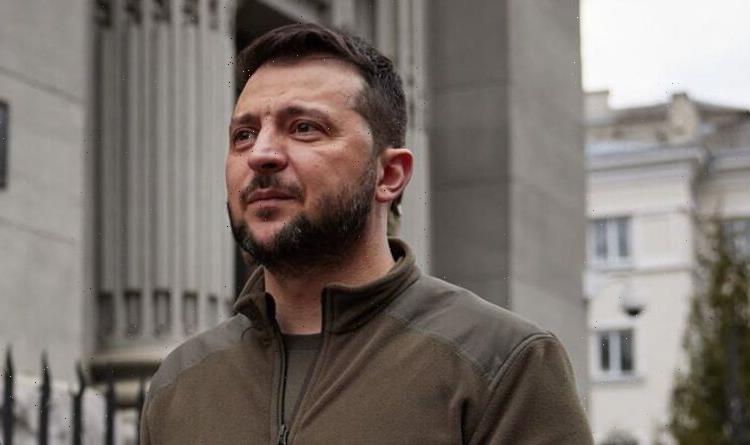Russia will ‘deny’ area to Ukraine says retired US General
We use your sign-up to provide content in ways you’ve consented to and to improve our understanding of you. This may include adverts from us and 3rd parties based on our understanding. You can unsubscribe at any time. More info
While Ukraine faces horrific challenges amid Russia’s ongoing invasion, the challenge of rebuilding its infrastructure following the conflict is also on the horizon. The Centre for Economic Policy and Research estimates it will cost between €200 (£170 billion) to €500 billion (£416billion) to get the country back on track. But these financial projections change day by day as the fighting continues.
Ukraine does not have to face the challenge alone though, and could be helped by a an oil tax collecting hundreds of billions from Russia to help it rebuild.
This could be imposed by forcing it to pay reparations as part of a peace settlement deal, like what happened in 1990 when Iraq had to pay reparations to Kuwait.
Iraq was taxed five percent on sales of oil and other petroleum products as a punishment for invading Kuwait.
Recipients, which include private individuals, companies, government organisations and other groups that suffered losses received $52.4 billion (£40billion) in total after more than 30 years.


This is a model Western governments might try and impose, using Moscow’s oil export revenue to help Ukraine rebuild.
Torbjörn Becker, director of the Stockholm Institute of Transition, has claimed it might even be in Russia’s best interest to pay a tax if it were lower than the discount it is having to sell at due an embargo from some western buyers.
He said: “If the tax is not more than the discount they’re already sort of having on selling their oil, that would make sense from their point of view as well.”
But this may not be so easy to impose, as a commission set up to deal with such issues has come to a close.

This means any deal negotiated by the UN would have to bypass a Russian veto at the Security Council.
Martti Koskenniemi, professor of international law at the University of Helsinki, said: “If [the Compensation Commission] had still been in place, it might have been possible to agree to a new program through a procedural decision without Russian approval.”
Ukraine may also be given a helping hand through the seizure of Russian assets.
Dubbed a freeze-and-seize task force, set up by the European Commission, €29.5billion (£25billion) worth of Russian assets were seized as of Friday.
This included assets linked to oligarchs and people affiliated with the Kremlin, with seizures of yachts, helicopters, real estate and artwork worth around €6.7billion. (£5.6billion).
DON’T MISS
Putin’s plot to hold Germany to ransom could end in disaster [INSIGHT]
Denmark stockpiles 2 million iodine tablets as nuclear fears soar [REPORT]
Putin threatens to STARVE Germany in horror retaliation to measures [INSIGHT]


EU officials, diplomats and Ukrainian officials, are reportedly considering discussing whether these assets — or the proceeds from their sale — could be directed towards rebuilding Ukraine.
An EU official said: “Our task force may serve as a platform to explore whether and to what extent the frozen assets can separately be subject to freezing and confiscation if they meet the standards of the relevant national criminal law. This is an ongoing discussion in the framework of the task force.”
Source: Read Full Article
